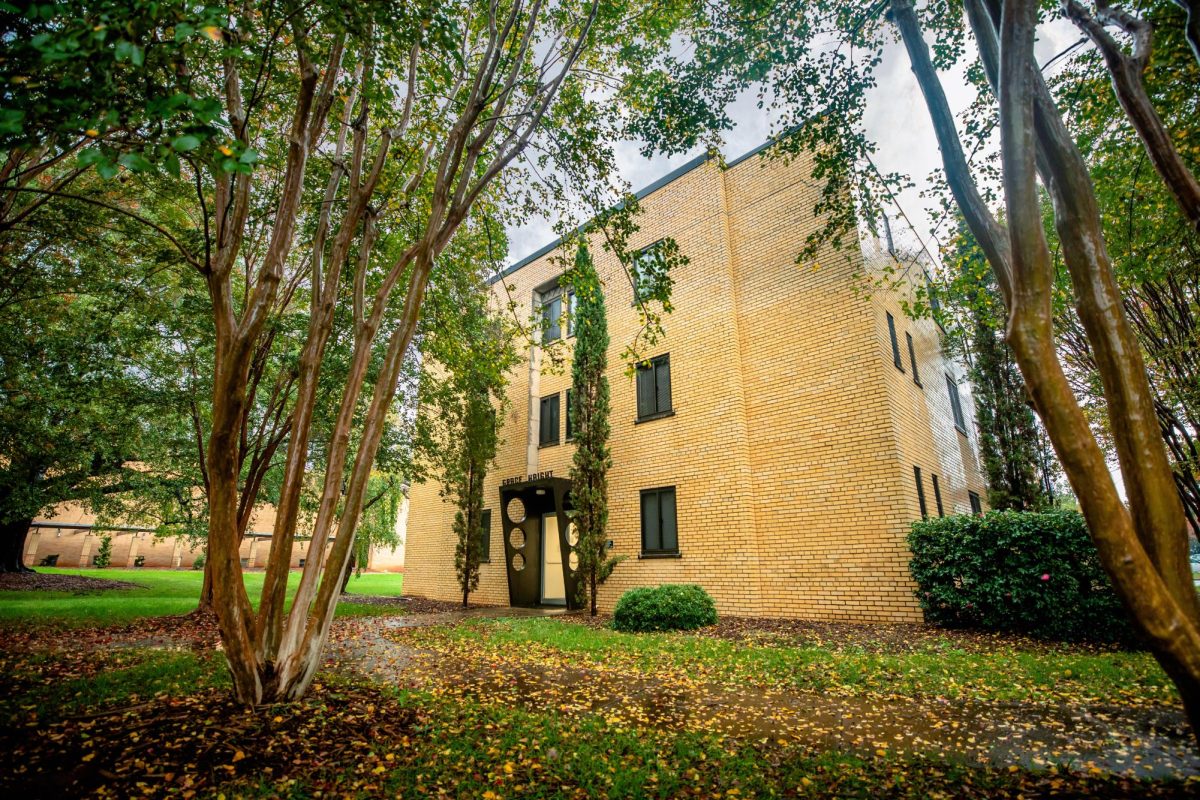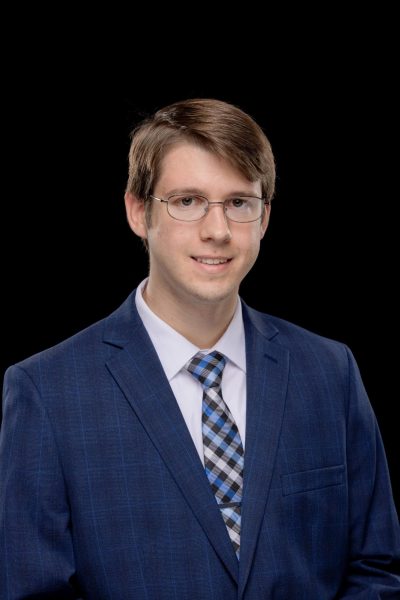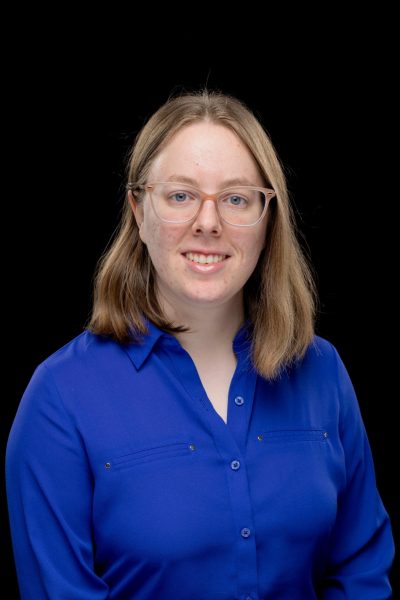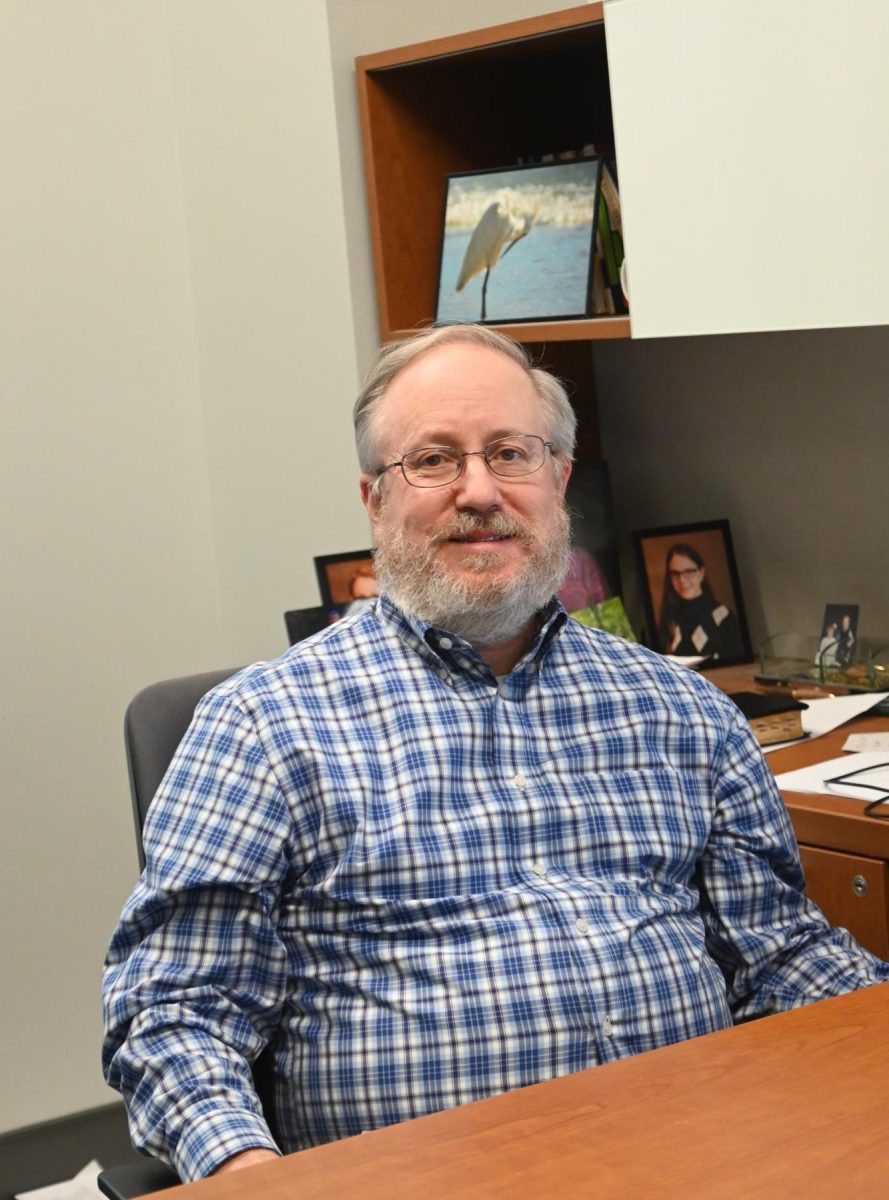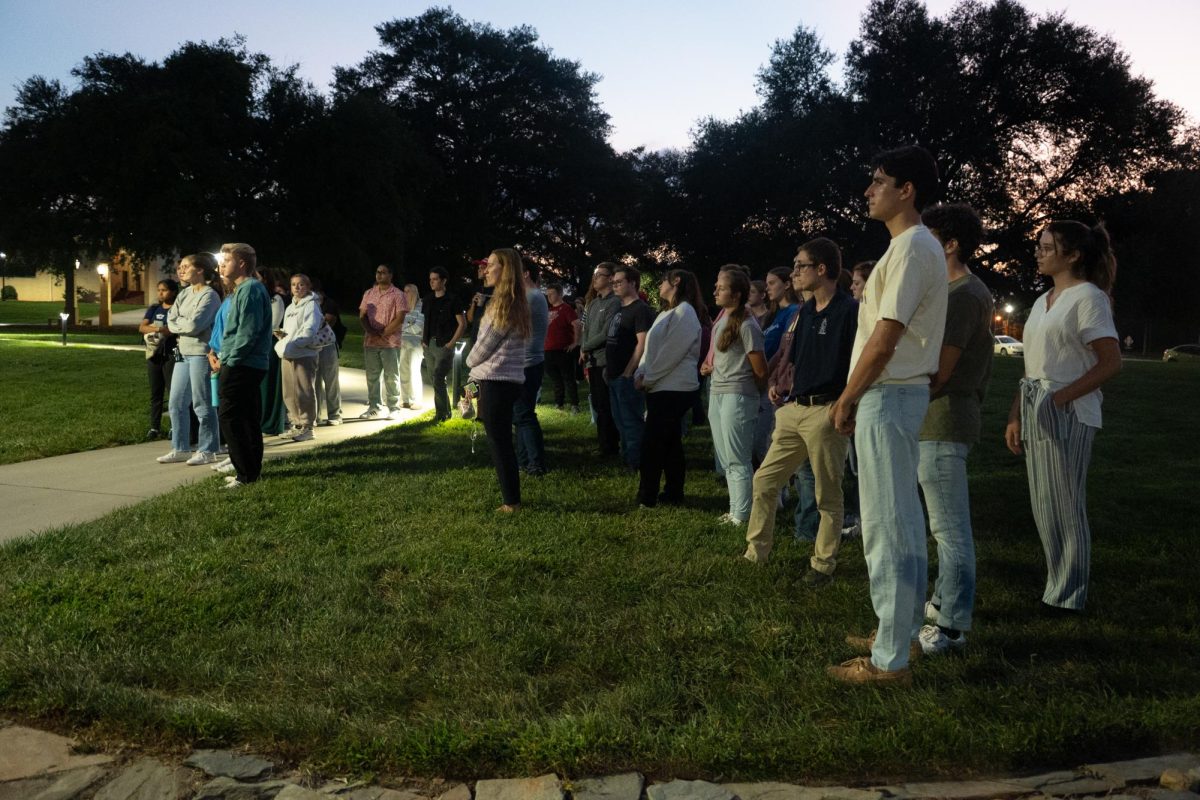“Backstage Pass” is a series of articles designed to take readers on a behind-the-scenes tour of the Bob Jones University campus. Many of the historical details in this story come from the BJU Today article “Origins: Grace Haight Nursing Building” by Lauren Flowers.
The EXP Zone at Bob Jones University is a hopping place. In one classroom, engineering students design everything from self-watering systems for plants to self-driving lawn mowers. Down the hall, a science class studies water quality and pH testing. On another floor, criminal justice students dissect their own crime scenes piece by piece.
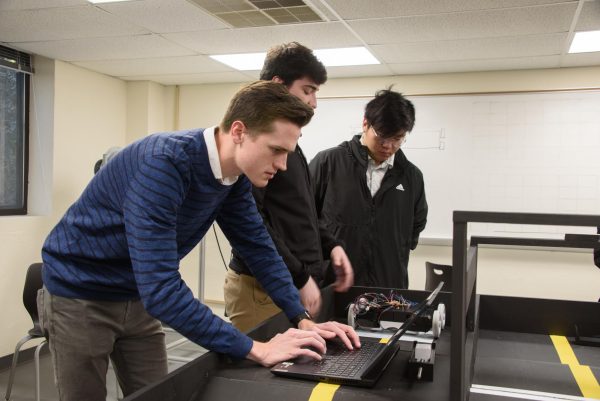
The EXP Zone, short for experiential learning, marks a transformation in use of the Grace Haight Nursing Building that now plays a unique role in the educational scene at BJU.
Who was Grace Haight?
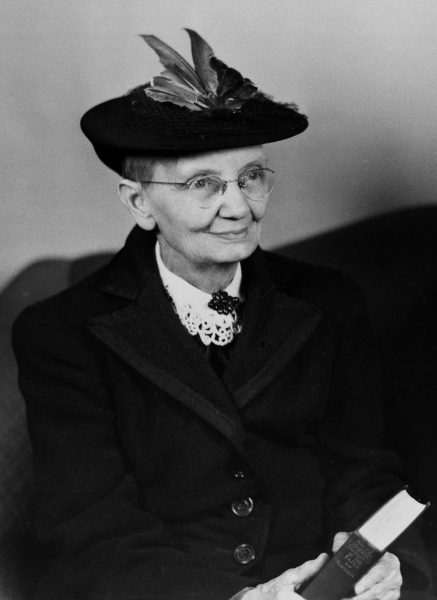
The building is named for Grace Woodman Haight, a self-funded missionary and a friend of Bob Jones Sr. BJU archivist Dr. John Matzko said that Haight was born during the Civil War in 1863. She came from a prominent Massachusetts family with ties to the Puritans. The family moved to Louisville, Kentucky, when she was young, and she lived there for several years. A woman of some means, Haight served as a missionary in China and Egypt, paying her expenses out of her own pocket.
Haight worked with orphans for several years before returning to the United States, where she eventually became the editor of a religious newspaper called Fellowship News as well as a teacher at BJU. She never accepted a salary for teaching—in fact, she regularly gave her own money to the school instead. The students and the faculty loved her for her generosity, her good sense of humor, and her love for the Lord. Grace Haight served BJU and its students faithfully until her death in 1955 at the age of 92.
The building’s many lives
Built in 1947, the Grace Haight Nursing Building looks like the nearby women’s residence halls, because it was once a dormitory. According to BJU Today, it was initially a residence for single women who worked in the BJU offices. Grace Haight lived there herself after it was opened. Married couples also stayed there for a time as well.
This arrangement lasted until 1968, when the Campus View Apartments were completed, and the Grace Haight Building temporarily became a girl’s dorm. It was used by Bob Jones University Elementary School for many years before the School of Health Professions took control in 1991. They worked out of there until 2020, when they moved to the remodeled Mack Library. In 2022, the building reopened as the EXP Zone as part of BJU’s quality enhancement plan. The plan is a requirement for accreditation that the university uses to identify an area of student success to improve and create a five-year plan to focus on improvement.
The EXP Zone
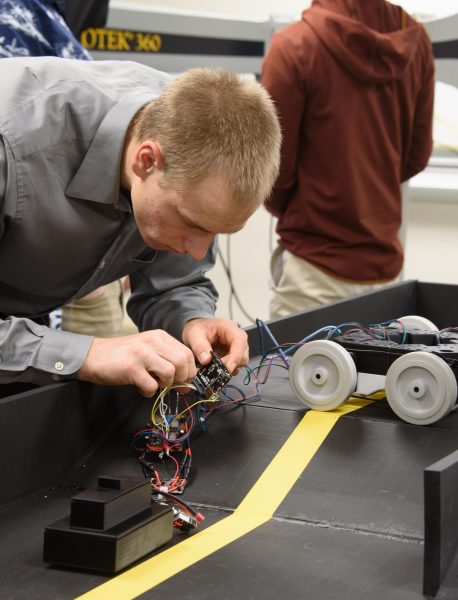
Dr. Bill Lovegrove, a professor in the engineering department, is the EXP director. He said the program’s purpose is to give every student some real-life experience in whatever they are studying.
“Every program in the university has to have built-in experiential learning,” Lovegrove said. “We call them EXP experiences. And that can be a lot of different things. … And as we’ve tried to launch more project-based classes, we realize that they often need space.”
Another advantage the EXP Zone offers is a neutral place where students from different majors can collaborate on projects. Lovegrove cited the example of the Global Challenges team—an interdisciplinary class consisting of business, engineering, and science students—who started a business called Soil Economy and received a $100,000 grant from the XPRIZE Foundation in 2021. The idea of the class is for students from these majors to launch a business that involves science and engineering to solve a world problem.
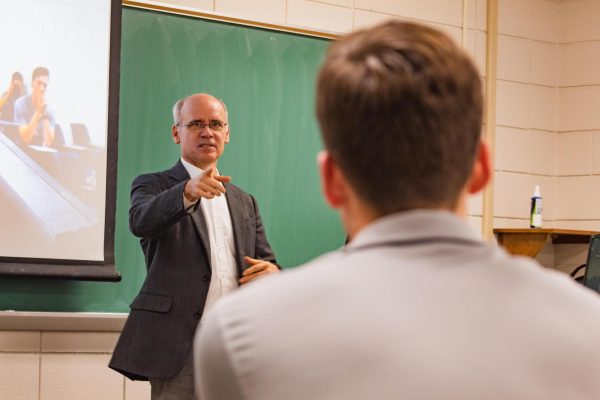
“If you go to the science building, the science students feel at home and the business students don’t. … So we have that class here in this building, and it’s neutral territory,” Lovegrove said.
Since Grace Haight was reopened as the EXP Zone, the EXP program has been a phenomenal success. Today, almost every department on campus—including art, engineering, and social studies—has a classroom or a lab at the EXP Zone. Not all of them are part of the program, but all of them offer opportunities for interdisciplinary studies and experiential learning.
One example of the EXP Zone’s success is a class called Operating in the Space Environment taught by Dr. Jeff King, head of the Department of Engineering. His class partnered with a company in New Jersey to build a functional prototype for a CubeSat, a satellite that is about the size of a large softball. King said that one thing he likes about the EXP Zone is that it isn’t a normal classroom, and it is set aside specifically for projects. Previously, they had to share lab space in the Howell Memorial Science Building with other students, which made completing their group projects difficult.
“All the students are doing their group design project in the fall, using the lab,” King said. “In the spring, all the seniors are doing their design projects in the same lab. … Grace Haight allows us to not have to share that space on a day-by-day basis.”
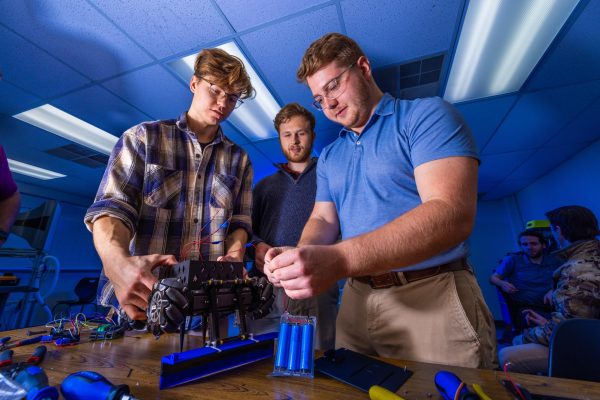
Another example is the Criminal Investigation class at the EXP Zone, taught by David Davis, assistant professor in the department of criminal justice. This semester-long class combines traditional lecture and textbook learning with what Davis calls “practical assignments” that tie into the distinct parts of criminal investigation. Projects include taking care of equipment, photographing a crime scene, conducting a search, or drawing police sketches. Davis highlighted the search project as one reason he is thankful for the new EXP labs.
“It would still take me, for a forty-five-minute class, about eight hours of preparation,” Davis said. “However, I would then need to put everything in the classroom. So that would mean moving desks and chairs, and putting things in. … No other teacher could use it until it was done.” With his new space in the EXP Zone, not only does Davis have a permanent place to set up his practical assignments, but he also has more time for his students as well.
What’s in the future?
Interest in the EXP Zone continues to grow, and there is not enough space in Grace Haight for the classes looking for space. In one year, Nearly every room has been filled, and yet there are other classes that are interested in the space. Lovegrove indicated that the program will eventually move beyond Grace Haight.
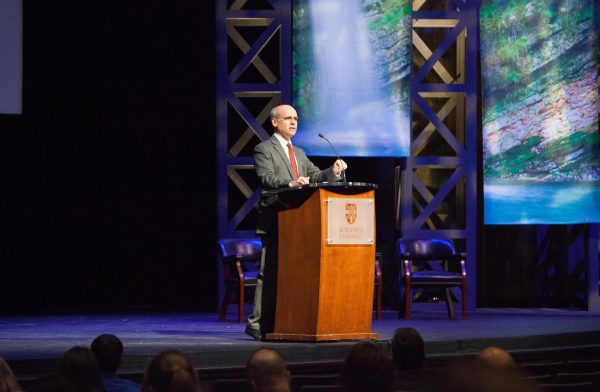
“I think there’s a long-term vision to have what we call an innovation center on campus,” Lovegrove said. “That would be a bigger, more modern, and newer building that would do a lot of the same things. So I think this is our starter innovation center. It’s not the final answer, but it was a great way to get started and learn about how things like this are going to work.”





















































